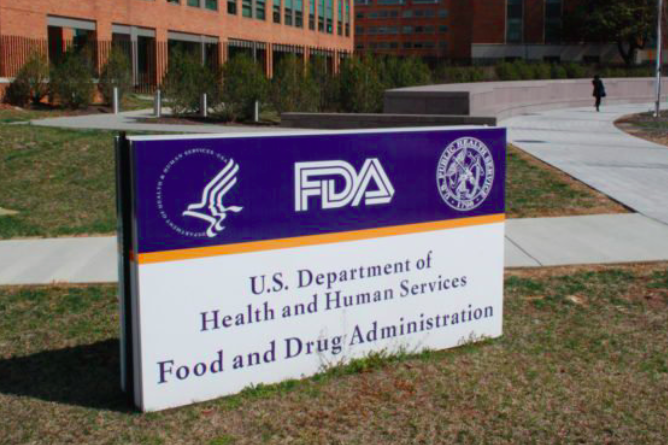
April 26, 2022
 Source/FDA
Source/FDA
The U.S. Food and Drug Administration expanded its approval of the COVID-19 treatment remdesivir to include children as young as 28 days old who weigh at least 7 pounds. Young patients who are hospitalized or are at a high risk of serious complications with a mild to moderate infection can now be treated by the medication.
The U.S. Food and Drug Administration has expanded its approval of the COVID-19 treatment remdesivir to include children younger than 12, the agency announced on Monday.
The approval now allows patients as young as 28 days old who weigh at least 7 pounds to be treated by the antiviral medication. Only children who are hospitalized with COVID-19 or those at a high risk of serious complications with a mild to moderate infection are eligible.
Remdesivir is made by the American biopharmecutical company Gilead Sciences and is sold under the name Veklury. It had previously been approved for certain adults, as well as patients 12 and older who weighed at least 88 pounds.
The FDA stressed that the treatment is not a replacement for vaccination. However, none of the currently available COVID-19 vaccines in the United States have been authorized for children younger than 5.
“As COVID-19 can cause severe illness in children, some of whom do not currently have a vaccination option, there continues to be a need for safe and effective COVID-19 treatment options for this population,” said Dr. Patrizia Cavazzoni, director of the FDA’s Center for Drug Evaluation and Research.
The federal agency said its approval was based on the findings of phase 3 clinical trials in adults, as well as a phase2/3 clinical trial of 53 pediatric patients who were at least 28 days of age and weighed at least 7 pounds. The patients in the pediatric study received remdesivir for up to 10 days.
The drug appears to be as safe in young children as it is in adults, the FDA said. Possible side effects include increased levels of liver enzymes – which can be a sign of liver injury – and allergic reactions such as low blood oxygen level, fever, shortness of breath, wheezing, swelling, rash, nausea, sweating or shivering.
Studies have shown that when remdesivir is given in the first five days of a COVID-19 infection, it prevents progression to severe disease and shortens the duration of infection by about five days.
A National Institutes of Health clinical trial published in the New England Journal of Medicine found that the median recovery time for COVID-19 patients who were treated with remdesivir was 10 days, compared to 15 days for patients given a placebo.
Remdesivir has been the standard treatment for patients with severe COVID-19 since the early days of the pandemic. The antiviral drug first received an emergency use authorization from the FDA on May 1, 2020 to treat severely-ill, hospitalized patients. It was then given full approval for adults and older children in October of that year.
The treatment faced some early criticism after certain trials failed to show that it provided any real benefit to patients, including the World Health Organization's Solidarity trial. Data from that trial suggested remdesivir did not reduce mortality or the time COVID-19 patients took to recover.
A smaller study published in The Lancet also found that the drug had no significant impact on mortality or the amount of time taken to clear the virus in severely ill COVID-19 patients.
Remdesivir was originally developed over a decade ago to treat other viral infections, including hepatitis C and Ebola.